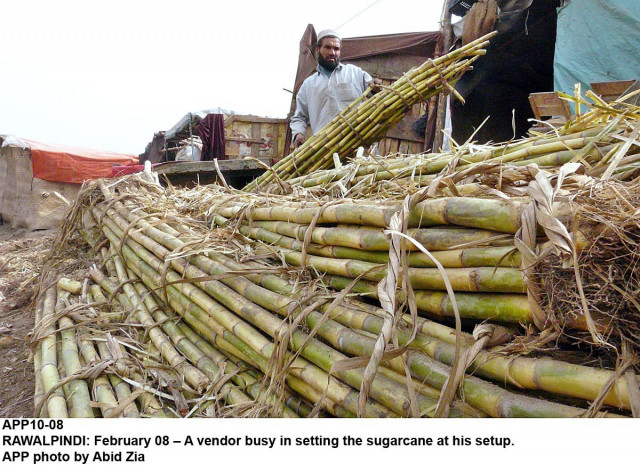Environmental hazard: SEPA comes down hard on Sindh’s sugar mills
Three mills have been shut down in the past three days

PHOTO: APP
The move comes at a time when farmers are locked in a dispute with the mill owners, some of whom had stopped cane buying and others threatened to follow suit, citing scant crop supply.
“The sugar mills are releasing hazardous untreated waste in the waterways and air. We have taken recourse to shut down the production process [of the mills] after their consistent failure to respond to SEPA’s notices,” the agency’s acting regional director Munir Abbassi told The Express Tribune.
He claimed that for many years, SEPA repeatedly served notices to all the 22 mills in Hyderabad region of SEPA to install in-house effluent treatment systems. However, he added, only four of them have initiated the installation process.
“We are taking action against one mill each day because it takes us between six to seven hours to close a mill,” he explained while asserting that the perception is wrong that the mills which did not follow the Pakistan Sugar Mills Association’s (PSMA) December 13 announcement are being persecuted.
Interestingly, the clampdown started on December 21 when representatives of the PSMA and farmers met in Karachi under the chairpersonship of Sindh agriculture minister Sohail Anwar Siyal to sort out their differences. That meeting culminated with PSMA withdrawing its December 13 intimation of suspending cane crushing, which meant resumption of cane procurement.
Some 17 out of 38 mills in the province had stopped crushing in the immediate aftermath of the December 13 announcement. The association blamed the farmers for deliberately constraining the cane supply to compel the mills to pay higher than the Rs182 per 40 kilogrammes rate, which had been fixed by the government.
According to the Sindh Sugar Factories Control Act, the Sindh government has to fix the buying price of sugarcane and notify the date for the crushing season.
Meanwhile, two of the closer mills, Dighri Sugar Mills and Seri Sugar Mills, challenged SEPA’s action in the Sindh High Court, which stayed the environmental watchdog’s action. “Our mill has been shut down due to political pressure,” claimed Lal Jamal, director of administration at Seri Sugar Mills, in his petition.
He also informed the court that Omni Group forcefully took over the mills in 2015 but after the high court’s order its control was given back to the Tabani group, which owns the mill.
At the meeting the millers failed to justify why they wanted to suspend the cane buying process.
“After failing to justify suspension of the cane buying process and consequent withdrawal from their position at the meeting, the millers have resorted to another way of doing the same thing,” commented a farmers’ representative, who requested anonymity because he was part of the delegation which held negotiations with the minister and was hopeful that the provincial government will listen to their concerns over SEPA’s actions.
Published in The Express Tribune, December 25th, 2016.



















COMMENTS
Comments are moderated and generally will be posted if they are on-topic and not abusive.
For more information, please see our Comments FAQ